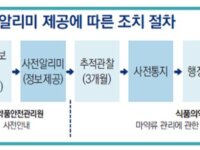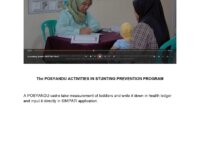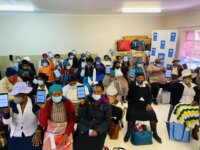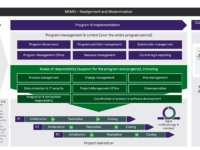UNDP has introduced a digital system that allows better reporting of public health data in rural communities in Lesotho. It consists of tablets and software designed to fit the needs of Village Health Workers, the Ministry of Health unit that collects the data, whose staff has low digital literacy. The initiative led to increased reporting frequencies (essential for monitoring fast-moving epidemics) and reduced costs; as a side effect, it increased the rates of digital literacy of the personnel.
Innovation Tag: Digital and Technology Transformation
Case Study
Digitalized Real-Time Narcotics Vigilance: Agile Monitoring & Pre-notification Surveillance of…

As the overuse and misuse of narcotics pose a global public health threat, the Korean governance has developed a smart, digitalized real-time monitoring system for narcotics safety management. By utilizing this state-of-the-art technology, the government can analyze prescriptions, track patterns, and alert doctors to prevent the overuse and misuse of narcotics.
The NEMO program is a forward-thinking initiative reimagining Hamburg's public registry offices to meet future demands by integrating digital transformation with user-centric services. Developed in response to an urgent need for modern, efficient public services, the program orchestrates a holistic transformation by managing 16 interconnected projects aiming to digitize citizen interactions by including agile management, cross-sector collaboration, and advanced technology.
The Sewa Setu Portal is a transformative initiative by the Government of Assam that utilizes cutting-edge technology to revolutionize public service delivery. It addresses longstanding issues such as slow service, accessibility challenges, and bureaucratic delays, thereby enhancing efficiency, transparency, and accessibility for citizens and businesses. The project aims to offer over 1000 online services, including advanced features like automatic eligibility notifications and digital…
Tawakkalna Services is a digital super-app which was created to simplify and enhance daily life of individuals in Saudi Arabia. It modernizes service delivery and benefits over 31 million users by providing a unified access point for diverse services, from healthcare to civil affairs. Its innovation lies in creating a unified digital ecosystem of public and private offerings, reflecting a bold step in digital integration aligned with Saudi Vision 2030.
UAsk, born from the need for seamless access to government services in the UAE, is an AI-powered chatbot transforming citizen engagement. Serving residents, businesses, and visitors, it leverages generative AI, particularly ChatGPT, for real-time, multilingual, and reliable information. Its innovation lies in delivering an inclusive, user-centric, and efficient digital experience, revolutionizing interactions with diverse government services within the digital governance realm.
BRISE-Vienna pioneers a digital revolution in building permit procedures, addressing inefficiencies with a groundbreaking approach. The integration of AI, AR and 3D modeling accelerates the process, enhancing project quality. This innovative solution benefits administrative staff, project participants and citizens, ensuring a partially automated review, seamless networking, digital access, heightened transparency and 50% time savings.
Born in Belgium Professionals is a RIZIV project that offers a digital tool, developed by and for professionals who work with or for (vulnerable) pregnant women. The tool is an online, shared platform that centralizes information about the psychosocial situation of the pregnant woman and makes it available to her care providers and healthcare providers from the (para)medical and social sector, fully in accordance with privacy legislation (GDPR).
Case Study
SIMPATI (Sistem Informasi Pencegahan Stunting Terintegrasi – Integrated Stunting Prevention…

The Local Government of Sumedang Regency, Indonesia has developed a new platform, ‘SIMPATI (Sistem Informasi Pencegahan Stunting Terintegrasi - Integrated Stunting Prevention Information System)’, as a tool to collect real-time data to make stunting reduction programs more effective and integrated. Through the SIMPATI platform, the government has a way of improving stunting reduction program, increasing stunting data management, and decreasing the stunting rate to solve the problem.
Suwon City, a municipality in South Korea, has streamlined its 12 public institutions by establishing a private cloud-based integrated business service. This boosts work efficiency by providing quality services without constraints on specialized personnel and server room operating environments. Integration of common tasks ensures data transparency and cost-effective operations.





